Spring mattresses
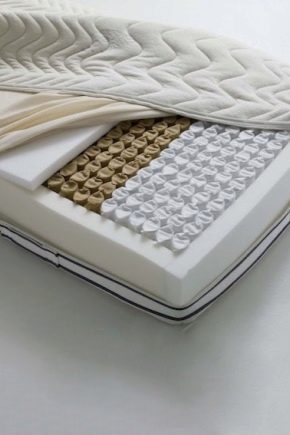
It is difficult to imagine a modern person who does not care what to sleep on. The daily rhythm is exhausting, so you want to relax to the maximum: on a flat mattress with comfort and health benefits.
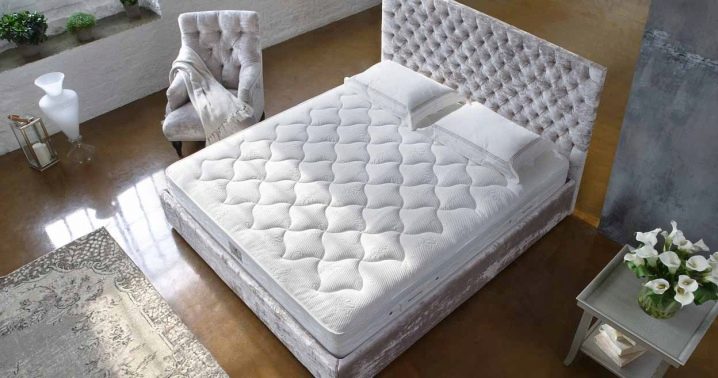
With the advent of new raw materials, designers of spring structures have to work harder, offering a completely different view of spring mattresses to the attention of the buyer. Today, such mats are radically different from their Soviet counterparts, which explains their popularity.
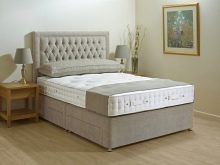
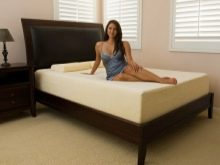
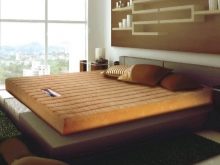
Advantages and disadvantages
Spring mattresses are the main line of mattresses of every modern sleeping mats brand. Moreover, today such products are intended not only for the bed: they do an excellent job of organizing a sleeping place on the floor, sofa, they can be put on a sofa or a folding chair. These are frame products with a metal core and a special additive to maintain the desired shape.
Due to the presence of a metal frame and the springs themselves, such mattresses are inconvenient to transport. They cannot be worn like folding models or stored rolled up in a roll: they need a solid base, so they are initially located on a hard surface (for example, on a bed with a wooden frame).
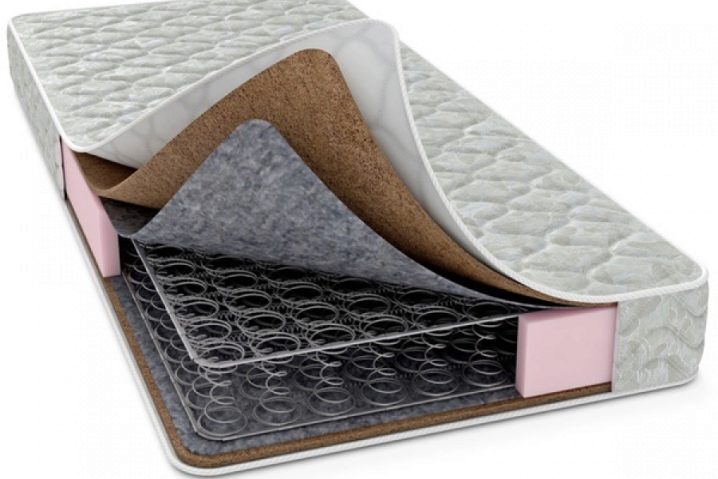
Spring mattresses are versatile and have a number of advantages. They:
- reliable and practical, designed for long-term operation;
- are distinguished by a convenient and comfortable bed surface;
- with the correct packing and the correct size of the springs, they have an orthopedic effect, providing anatomical support for the body in any position (lying on the side, back, abdomen);
- in some models, they reduce pain in the spine, lower back, shoulders, legs;
- have a wide selection of models with the expectation of different heights, user weight and the number of berths;
- suitable for beds (sofas) with and without restraints;
- come in standard or custom sizes and shapes (rectangular, oval, square and round);
- depending on the model and components, they can have an additional effect and different degrees of block rigidity;
- contain a hypoallergenic filler that does not emit toxins and does not cause allergies (relevant for users with particularly sensitive and irritating skin);
- are made in bulk or to order, taking into account the individual preferences of the client;
- based on the volume and cost of the constituent materials, they differ in different prices, allowing the buyer to choose the most suitable option without sacrificing his taste and wallet.
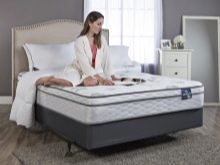
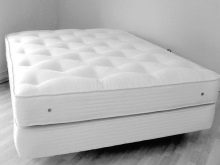
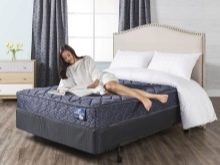
Today, the design of such blocks is being developed with the possibility of minor repairs, which saves the budget and replaces broken parts.
Alas, spring mattresses also have disadvantages, and the reason for this is the springs themselves. Such mats:
- sensitive to sharp loads, which is accompanied by stretching of steel elements;
- due to the metal, they accumulate static electricity, exerting a magnetic effect on the user's body;
- with intensive use, they can fail, break, fall through (weakening or breakage of springs with a rupture of the upholstery fabric);
- completely unsuitable as children's mattresses for infants and children of primary school age;
- unsafe, since a sharp breakage of the spring can injure the user's body;
- during operation, they can make an unpleasant creak;
- have a high cost in orthopedic constructions with an additional effect.
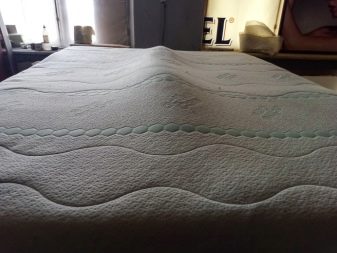
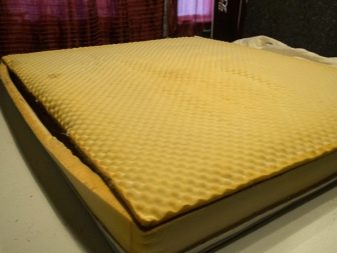
Types and device
Paying attention to the mass of varieties offered by trademarks for sale, it is difficult not to get confused. If you need to buy, it is important to know the basics of the structure, the types of spring mattresses: this will simplify the purchase and allow you to purchase exactly what you need.
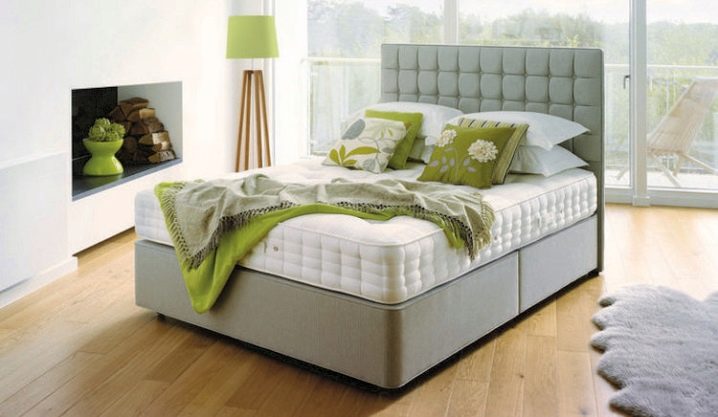
Internal structure of the mesh. Despite the apparent difficulty of recognizing the structure of the block, in fact, there are only two types of them:
- dependent, in which the springs are connected to each other;
- independent, not having a metal connection of springs.
The basis of each structure is a metal mesh with vertical twisted steel elements located close to each other. The difference between the two types is not so great, however, it is this difference that changes the properties of the block.
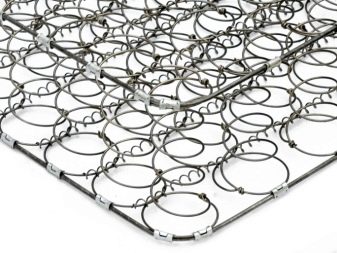
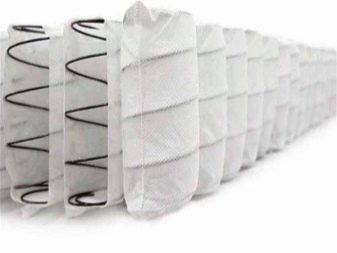
Dependent springs
In a dependent type innerspring mattress, each spring has a connection with those that surround it, not counting the connection at the top and bottom edge of the net. This system is called "Bonnel". When loaded, the working springs bend by themselves and pull those with which they are connected. Therefore, the user notes some discomfort, because he has to fall into a hole, always ready to move to any place in the block (wave formation). The lattice base of the bed is the limiter for stretching the springs. As a rule, it is made of birch or pine lamellas (wooden beams located across the length at the same distance from each other).
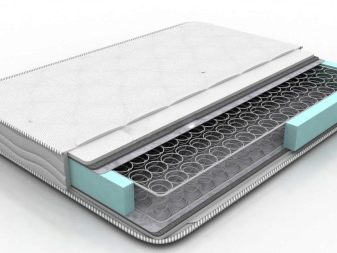
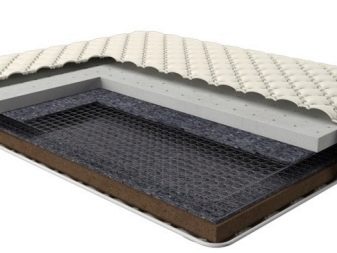
Mattresses of this type today use bicone, tapered wire spirals in the center. This makes it possible to somewhat lighten the weight of the entire mat, reduce the consumption of metal material, and most importantly, eliminate friction of the springs against each other. Bonnel mattresses with sand springs are durable, they have stood the test of time and have a long service life. Due to the increased thickness of the wire of the very connection of steel elements, during operation, individual springs are less often overloaded, so they do not fail for a long time.
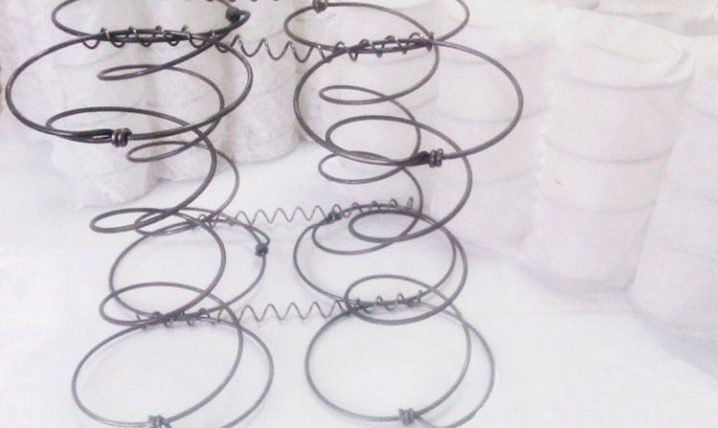
Independent block (Pocket)
In a spring block of an independent type, each spring, no matter how many there are, is packed in an individual case made of breathable textile, so it has no connection with nearby ones. In order for the mesh to be solid, all springs with a micro package are connected. Due to this feature, under load, only those springs that are under pressure are included in the work. Buying such a mattress, you can be sure that there will be no pit under any load. Moreover, the position of the spine, in contrast to the models of the dependent type, will always be correct.
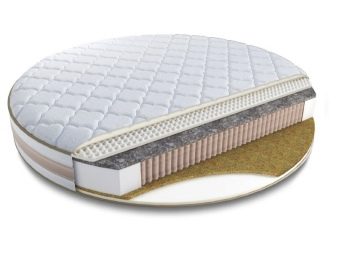
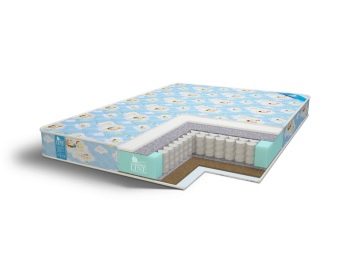
Due to the autonomous operation of each spring at a point load, they fail more often. With intensive and prolonged use, the wire is capable of tearing the fabric cover, which is bad for the entire mattress (the structure of the additional filler is destroyed).
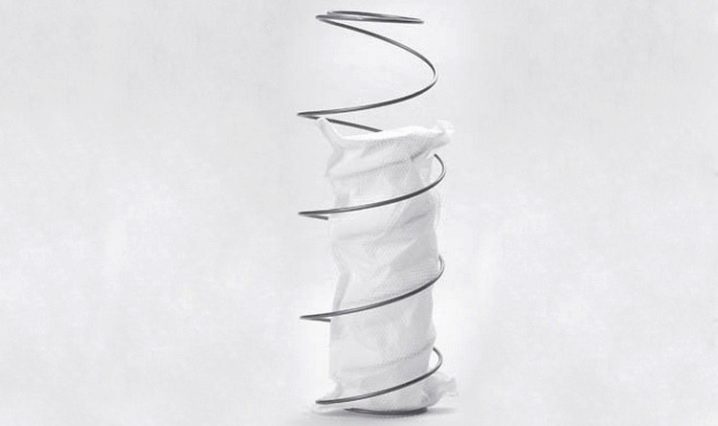
For information on the difference between dependent and independent springs, see the next video.
With reinforced spring block
One of the improved designs are models with double independent springs. In pocket-type mattresses, an element with a smaller diameter is inserted into a large vertical spring. At the calculated normal pressure, only the external springs work. If additional support is needed, the second elements are included. Such a block is the most durable: complemented by a special padding, it is a serious competitor to springless models.
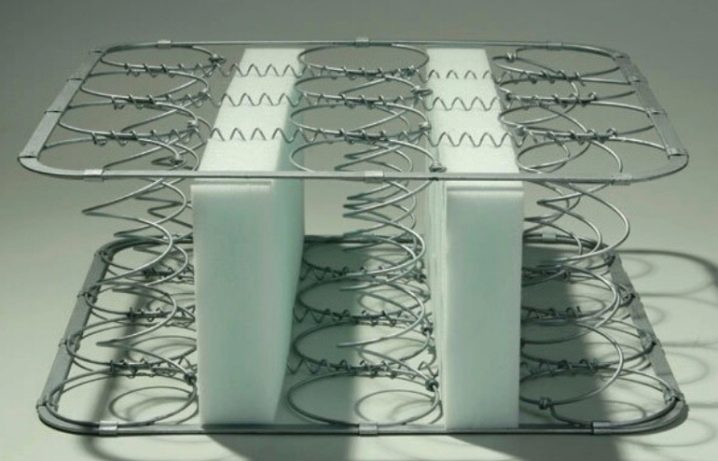
Usually, high-quality wire is used in production, and it is generally accepted that the more of it in the net, the more reliable the mattress. However, few people know that the number of springs alone is not enough to determine the quality and durability of a block. To buy what you need, you should know their features.Then it is easier to understand the seller's speech, supported by sometimes strange terminology. And if he talks about springs, it is important to understand the name and practical characteristics: the service life and your own health depend on it.
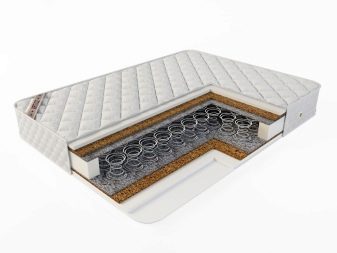
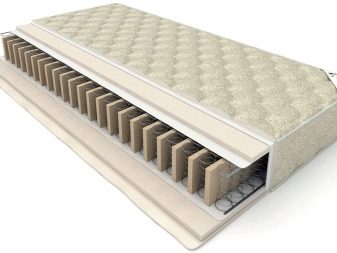
Today, in the production of spring mattresses, springs of various shapes are used. Each category has its own pros and cons:
- "Hourglass". A fitted spiral capable of adjusting the surface of the block to the contours of the user's body, does not have point orthopedic support for the spine due to the large diameter of the spring at the surface of the block.
- "Grace". These springs are not resistant to lateral deformation; under pressure, they cannot sag evenly. When pressure is created on the block, areas with a large diameter react. When the load increases, the central areas of the springs are included in the work. Such elements are used in economy class blocks. They are not designed for a user with excess body and are contraindicated when purchasing a children's mattress.
- Standard. Barrel springs are the basis of most spring-based models, filling the line of budget, standard and premium mattresses. Outwardly, such elements resemble a cylinder, with coils narrowed at the edges. This feature allows for fine adjustment of the unit to the human body. However, this alone is not enough: the size of the spring should be small. These springs easily tolerate lateral deformation, although they can create friction with each other. In order for them to provide an orthopedic effect, their diameter must be small. In addition, it is worth remembering: the thicker the wire and the more coils the springs have, the better the quality of the mattress.
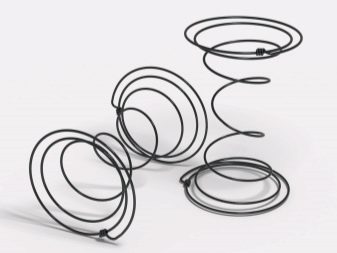
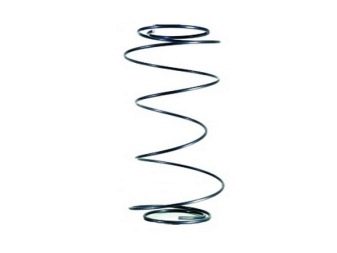
All existing varieties of the spring block are soft. Of course, in the rulers you cannot find models with a particularly hard surface type, as in springless counterparts. In any case, even when supplemented with solid material, the springs will stretch when loaded.
According to the degree of rigidity, spring mattresses are:
- soft - classic economy class options that have no additional effect;
- moderately harsh - products for the main circle of buyers with an additional effect;
- tough - analogues of orthopedic springless mattresses with orthopedic support for the user's body.
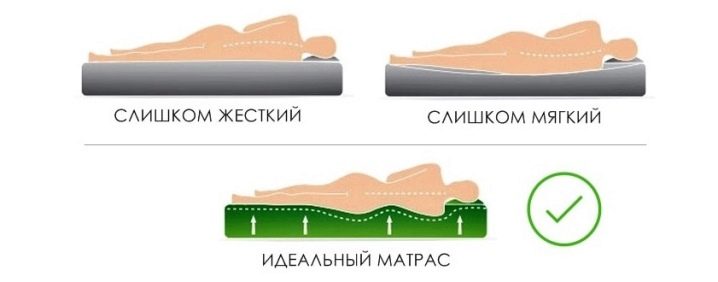
Each degree of rigidity is designed for a certain weight, health and age of a person. Of the unique models on a spring basis, worthy of attention, it can be noted:
- double-sided structures with varying degrees of surface rigidity;
- double-sided models with asymmetry (different pressures of the two halves of the block, mats for two);
- double-sided products with thermoregulation ("winter-summer" version, warm on the one hand and refreshing on the other);
- models with highlighted stiffness zones.
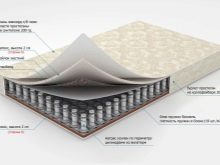
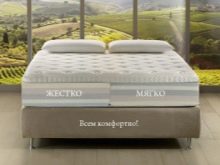
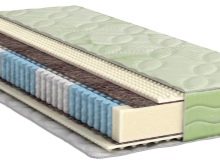
Fillers and upholstery
No spring block can be made without adding a special filler and a special cover. Often, the padding determines the best qualities of the block, because the metal mesh itself is not a full-fledged block. You cannot do without a mattress topper: it ensures the integrity of the structure, covering all the details of the block.
In the production of spring mattresses, companies use a different type of filler, using the best types of padding with optimal density.
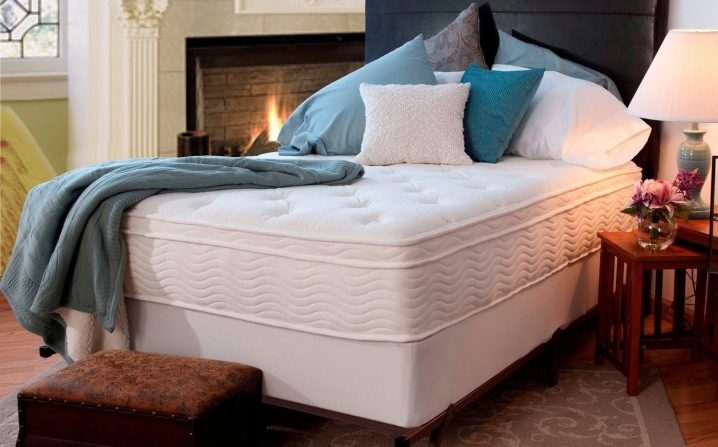
The highest-level fillers with excellent practical and wear-resistant properties include:
- natural latex - an elastic, dense and elastic material of natural origin from hevea tree sap, pierced with holes of different depths and diameters (multilevel support of the spine at each section of the block);
- artificial latex - polyurethane foam filler (PPU) of HR class with insignificant latex impregnation, rigid and without internal cavities (a budget alternative to natural latex);
- coira - a unique orthopedic material, coconut fiber, produced from the pericarp of a coconut;
- memorix - a viscoelastic material with anatomical properties and is able to conform to the contours of the body when heated;
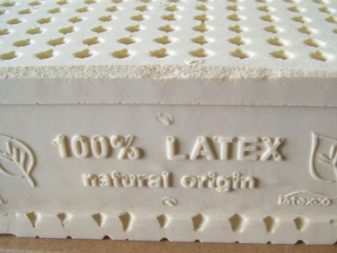
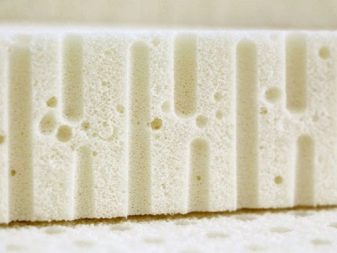
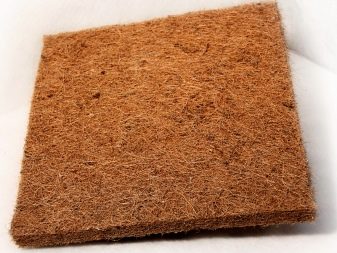
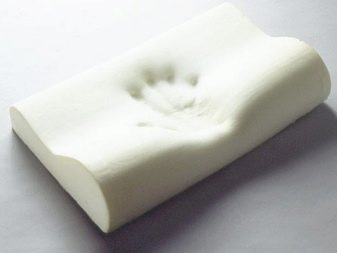
- struttofiber and holofiber - bulky stuffing materials that allow varying the degree of rigidity are used as an additional layer;
- spandbond - hygroscopic material with high density, used to protect the outer surface of the block and to evenly distribute the load between the layers;
- felt, sheep and camel wool - additional natural layers that give the block the desired heat-regulating effect.
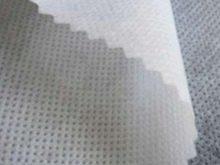
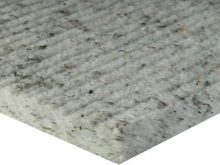
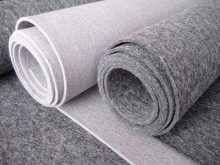
As upholstery, the company uses natural textiles with a dense texture (calico, teak, jacquard, polycotton). Thanks to the non-slip texture of the material, bed linen will not pile up, forming folds. The texture of the fabric can be smooth or embossed.
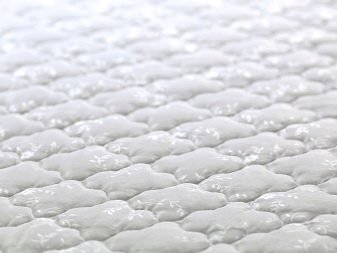
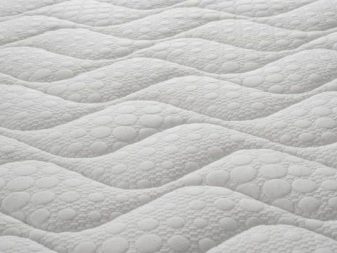
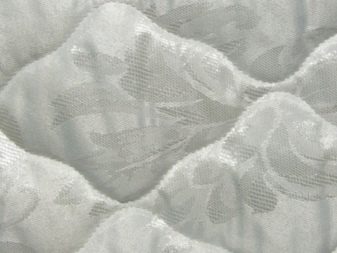
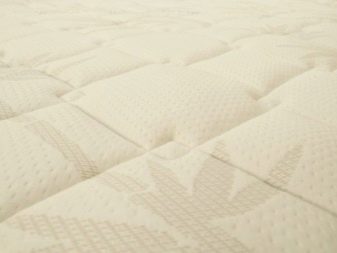
Dimensions and weight
The dimensions of spring mattresses are subject to the parameters of the beds. There are several standards for size lines:
- baby, with parameters 80x160, 60x120, 70x120, 80x120, 80x130, 90x120, 90x140, 100x130 cm;
- single beds, the length and width of which is 180x80, 70x190, 80x190, 90x190, 190x110, 80x200, 90x200, 120x200, 220x90 cm;
- one and a half sleeping, with dimensions 140x190, 140x200, 160x200 cm;
- double - 180x200, 190x200, 200x200, 210x200, 210x220 cm.
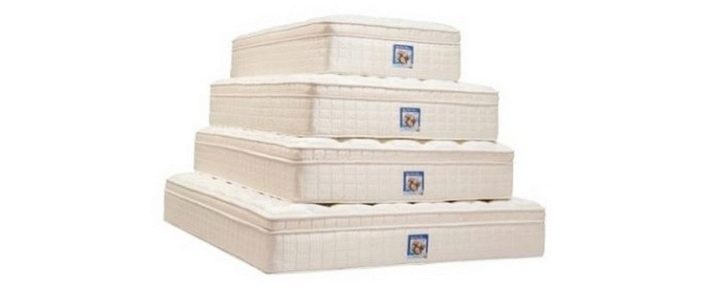
The height of the mats is also different. Spring models with a small layer have a standard height of 12 - 18 cm. Models with several layers of different fillers are more luxuriant: they reach a height of 24 cm or more. The weight of the spring blocks depends on the structure of the mat. On average, it ranges from 10 - 13 kg (in thin models) and up to 21 kg (in composite puff).
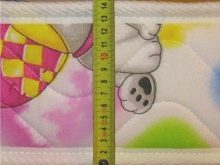
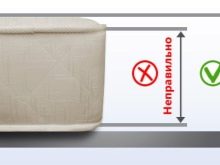
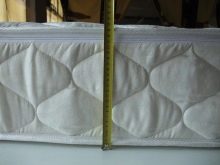
Colors
The color of the mattress depends on the selected textiles. In most cases, companies pack the block in natural white textiles. However, such a mattress is impractical, so buyers are looking for more acceptable options: even covering the surface of the mattress with bed linen, over time it turns yellow, forms stains, and looks untidy. Realizing this, companies dress designs in cases of beige, light gray, and cream. These are mainly monochromatic and discreet shades. Among the lines, you can find models in a light blue, pale pink tone.
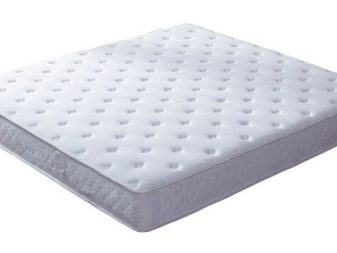

The range of spring mattresses for children is more resilient. Such covers are distinguished by rich colors: blue, pink, light green, orange, green.
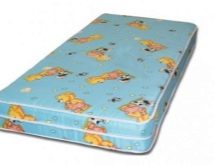
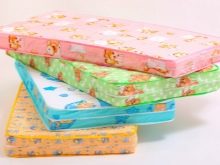
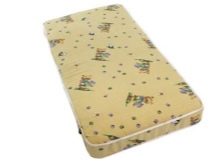
How many springs should there be?
The number of springs is a special topic. Manufacturers indicate different data: from 500 to 2000 pcs. per square meter.
It is important to take into account here: the more springs the block accommodates, the smaller their diameter and the greater the rigidity.
On average, if the block structure is sparse, the number of springs is 200 - 256 pcs. for 1 sq. m. There are weaker models: 100 - 150 springs per sq. m. m. Such a block cannot be called good and durable. It can be suitable for users weighing up to 60 kg, although such a product cannot be called reliable.
The standard number of springs varies from 420 to 500 pcs. per sq. m. Such designs constitute the main line of spring blocks. In some models, the number of elements ranges from 625 to 1000 pieces. The surface of such products is rather hard. These designs are good for users weighing more than 90 kg. However, they are not suitable for heavy users weighing more than 140 kg, as the heavy weight will quickly push any springs.
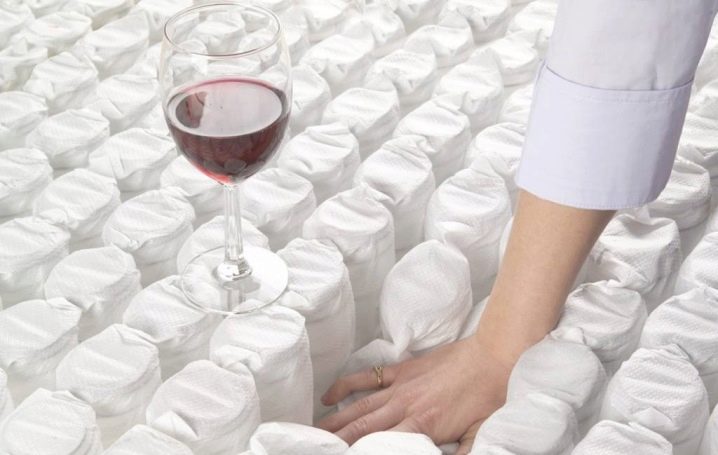
Life time
On average, a spring mattress is designed for 10-15 years. The indicator of each model is different, because it depends on the components and structure of the block. As a rule, mattresses with an orthopedic effect are durable. With proper use and care, they can last more than 15 - 20 years. Dependent type models have a shorter service life: 8 - 12 years. If you do not jump, periodically turn the product over to the other side, use the mat in accordance with the weight load, the product will honestly “work out” the allotted time.
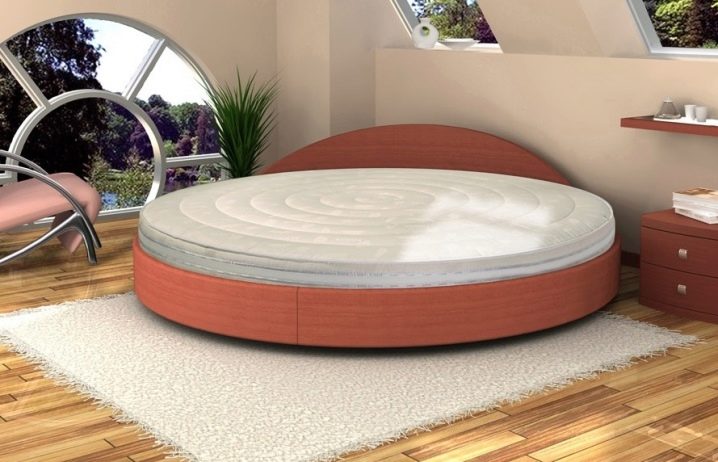
How to choose?
Before buying, you need to familiarize yourself with some recommendations that will help facilitate the choice:
- First, you should consult a doctor, find out his opinion about the benefits and compliance of such a block with the medical indicators of a particular person.
- You should never take a mattress "on the fly": the choice should be thorough and well thought out. It is necessary to scroll through the information on several models in case the choice in the store is limited.
- A polyurethane block based on dependent springs of double-sided softness should not be considered: day after day, such a mattress will deform the posture, forcing the body to take unnatural postures. You should not try to save in this way: having won in money, health will be lost, which will lead to regular headaches, a feeling of chronic fatigue, cramps, pain in the lower back and shoulder girdle.
- A spring block of an independent type is worthy of consideration, however, taking into account some nuances. It makes no sense to take a model with a minimum number of springs: there is no desired back support in such a block, even if it is equipped with coconut coir or latex.
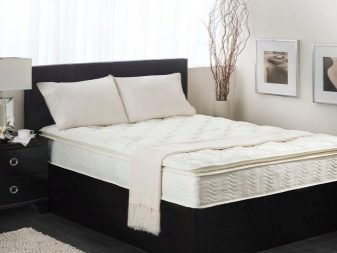
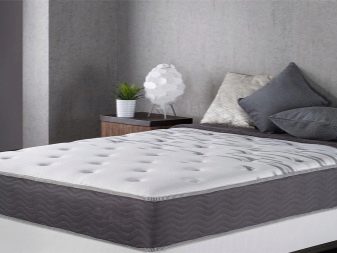
- If you want to choose a high-quality and practical product, you should pay attention to the "Micropack" and "Multipack" models with an elastic additive made from several layers of different orthopedic materials.
- It's great if you manage to get a block with double springs: this design is especially relevant for a double or spacious mattress. In this case, the rest and weight of each partner is taken into account, rolling of a person with a lower weight to a larger one is excluded. Depending on the weight of the users, such a block creates even pressure on both halves of the mattress with the use of smaller springs under a special load.
- Is it suitable for children? No matter how brands may prove otherwise, such models are not intended for children, especially babies. When purchasing a spring mattress for a child of 3 years old, you cannot count on the excellent orthopedic properties of the mat. Compared to springless counterparts, the orthopedic effect of such models is less pronounced. It is enough for adults, but not enough for babies and newborns, whose spine does not yet have the necessary curves. Any discrepancy in stiffness, spring size, or inappropriate padding can affect posture.
Watch the following video to help you make the right choice when choosing a puffer mattress.
What affects the quality?
The main points that affect the quality of a spring mattress include:
- the density of the springs (number and diameter);
- steel wire thickness (at least 2 mm);
- high-quality, dense packing;
- natural textile of the cover;
- durable metal frame;
- correctly selected glue in the right amount;
- conscientious execution.
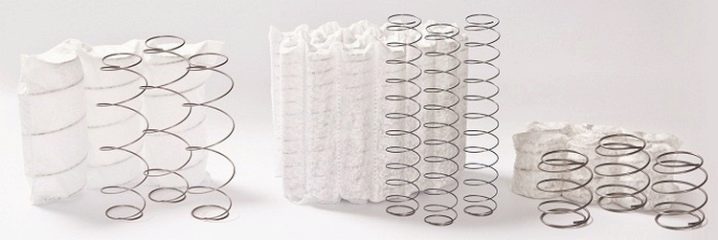
How to replace the spring block and overtighten the mattress?
Repairing a spring block is an activity that every home owner can do. If the springs are out of order, they can be replaced. To do this, you need to disassemble the mattress, after removing the cover, then the inner textiles that cover the unit itself. Broken elements are unscrewed with pliers, after which they are replaced with new ones purchased from a specialized store.
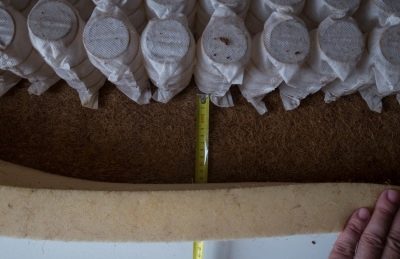
As for the cover, it usually cannot be restored.
There are two solutions here:
- cut it into separate parts, cut out a new one for them, sew and put on the block;
- use the services of stores by purchasing ready-made packaging of the required size (order on the seller's website).
It should be borne in mind that the cover is preferable to a removable plan: it can be changed in the future or washed if it gets dirty.
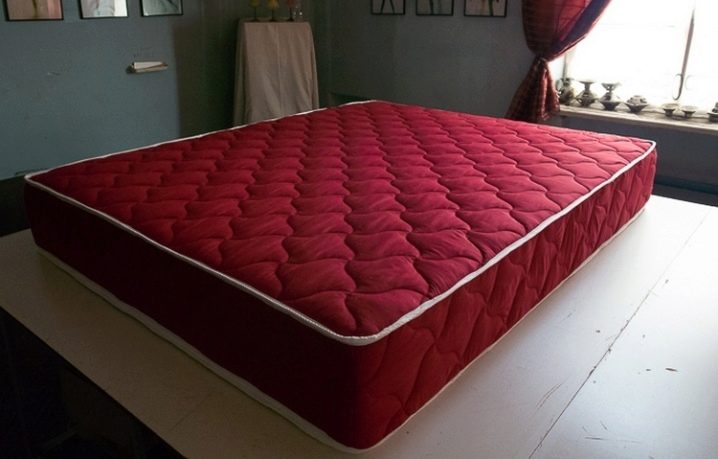
Rating of the best manufacturers
To understand what modern spring mattresses look like, you should take a closer look at the products of companies that have been tested by time and by real users:
- Askona - a wide range of models for different weights and ages, models with a guarantee and a removable synthetic winterizer cover;
- Consul - constructions made according to new technologies, taking into account age and medical indicators, equipped with a natural breathable cover with 3D inserts, have a guarantee for more than 20 years;
- Ormatek - options with an orthopedic effect, good spine support for adults, bilateral medium-rigid models with springs;
- "Promtex Orient" - designs for different age groups with a maximum permissible weight of up to 150 kg, dressed in a removable cover, universal and prophylactic models for young and elderly users with care to reduce pressure on body muscles;
- Dreamline - high-quality spring mats with high strength and durability indicators, have an average surface hardness.
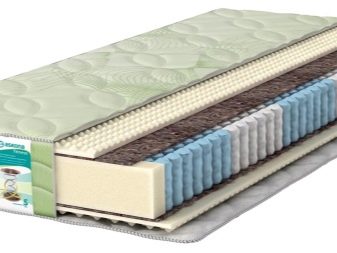
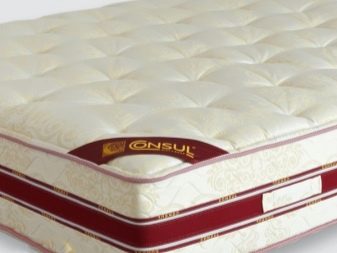
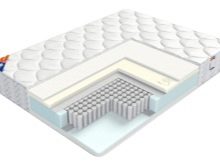
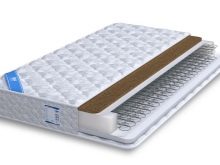
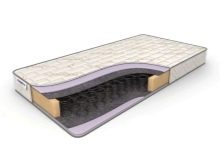
Reviews
Inner mattresses are a controversial topic. According to buyers, such products should be purchased if the person is completely healthy. For children, caring parents tend to choose springless counterparts, taking into account the benefits of the latter and the most pronounced orthopedic effect.
In general, users are happy with their purchases. From a large selection of models, they single out two-sided spring mattresses of the independent type "Multipacket" with double springs and thermoregulation. Such mats are comfortable, comfortable, they are warm, do not overheat the body, create a cozy atmosphere, - the buyers write in the reviews.
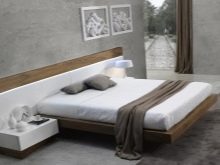
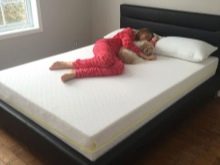
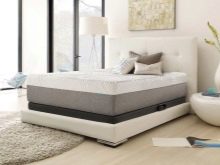













The comment was sent successfully.